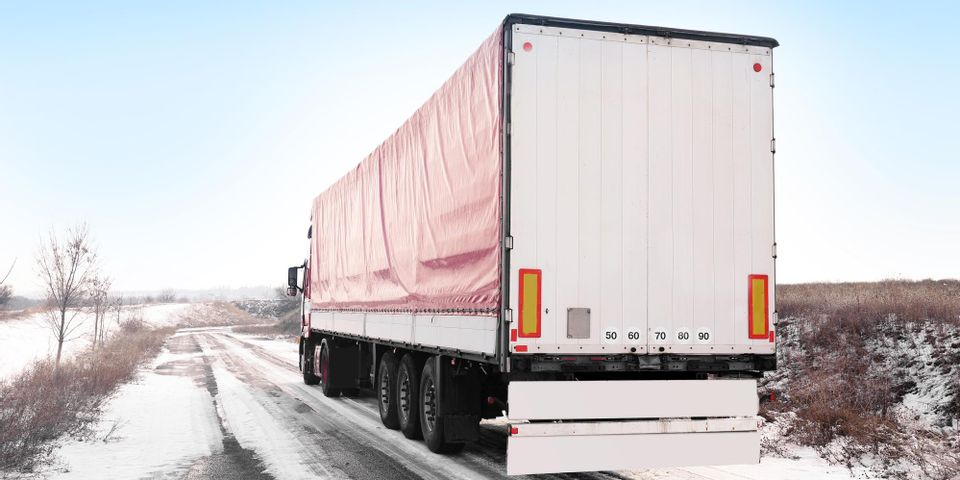Top 4 Truck Safety Suggestions for Winter

When temperatures drop and snow and ice layer the highways, driving becomes more dangerous no matter what vehicle you're in. However, when you're driving an 18-wheeler carrying 80,000 pounds, truck safety becomes paramount. Below are some important suggestions to help you prepare for the challenges of driving trucks in winter.
Your Guide to Safe Winter Truck Driving
1. Check the Battery
You can't afford the delay that might arise due to a dead battery. The cold weather can quickly drain your truck battery, especially if it’s old. Before departing for a long trip, check its age and make sure it can hold a charge. Look for signs of corrosion and fluid leaks around the battery, as any oozing acid can also corrode its surroundings. This can lead to costly issues down the road if it’s not inspected and repaired right away.
2. Install an Engine Block Heater
 Diesel engines are more difficult to start than gasoline engines in winter because they require a higher cylinder temperature. To circumvent ignition problems, install an engine block heater and plug it in during nights when a temperature drop is expected. It not only improves startup ability, but it keeps oil and antifreeze warm, and enables them to circulate more freely, minimizing engine damage.
Diesel engines are more difficult to start than gasoline engines in winter because they require a higher cylinder temperature. To circumvent ignition problems, install an engine block heater and plug it in during nights when a temperature drop is expected. It not only improves startup ability, but it keeps oil and antifreeze warm, and enables them to circulate more freely, minimizing engine damage.
3. Maintain a Safe Distance & Speed
Ice, snow, slush, and water make highway driving treacherous. When the weather reaches harsh conditions, take your time and drive slow to avoid skidding. A big rig can’t slow down easily or navigate curves nimbly, and speed affects handling ability considerably, so maintain safe speeds when road conditions are poor. Make sure to also leave plenty of room between your rig and the vehicle in front of you. Be cautious when changing lanes, and avoid giving in to any type of road rage.
4. Carry Emergency Supplies
A winter breakdown can be deadly, especially if the truck is stuck in the middle of the road. Pack supplies to protect yourself, even if such an event is unlikely. Make sure to include a shovel, flashlight, batteries, and plenty of snacks and bottled water. Carry blankets, snow boots, gloves, an emergency phone, and a first-aid kit as well. These supplies could help you in case of a severe emergency.
To learn how to operate a big rig professionally, contact Professional Driver Institute in Monroe County, NY. They are a fully licensed and accredited truck driving school committed to education and safe practice. Over 5,000 students have gained extensive truck safety, basic diesel repair, and truck and trailer maintenance since 1993. Check out their website to see a list of programs or call (585) 293-1203 to learn more.
About the Business
Have a question? Ask the experts!
Send your question

